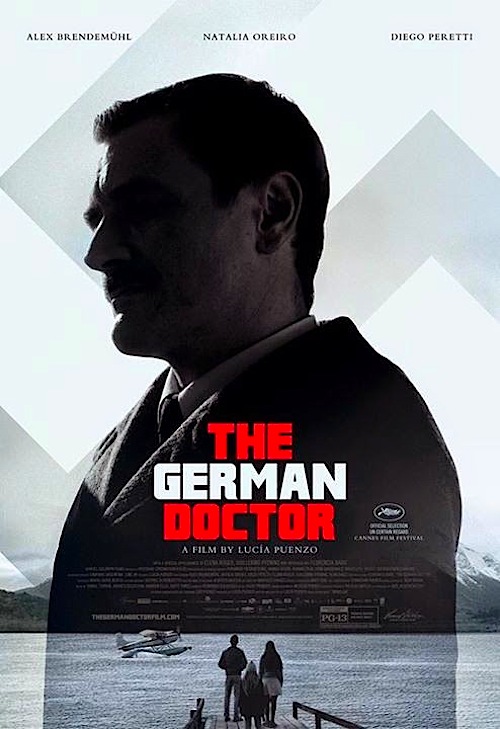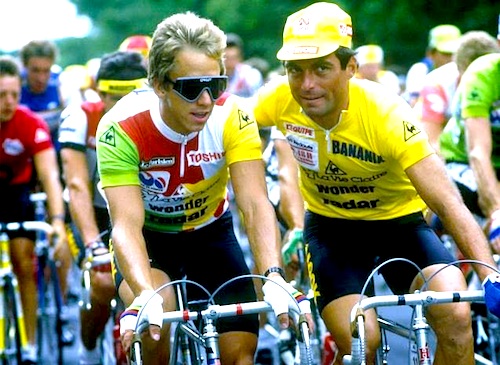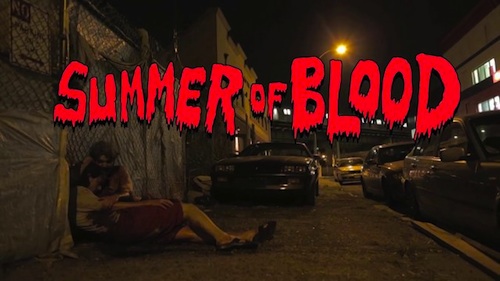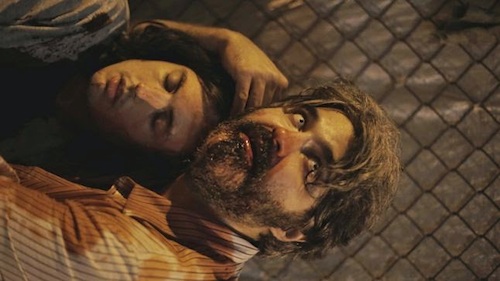By Joe Bendel. Unfortunately, the physician in question is not Albert Schweitzer. It is the monstrous Josef Mengele who has ingratiated himself with young Lilith’s family. Living under an assumed name, the evil “Angel of Death” has resumed his eugenic research with the help of Argentina’s large German expat community. Adapting her own novel Wakolda for the screen, Lucía Puenzo offers some informed speculation about Menegele’s Argentine years in The German Doctor, which opens tomorrow in New York.
Lilith is traveling through Patagonia with her father Enzo and her very pregnant mother Eva, who happens to be carrying twins (if you know anything about Mengele, you recognize that this will become significant later). On the road, they meet a German doctor, who asks to follow them through the forbidding landscape for safety’s sake. Eva happens to be the graduate of Bariloche’s German language school, so she can converse with Mengele in his fatherland tongue. She even has old class photos generously accessorized with swastikas.
 Initially, they are only too happy to have the doctor take up residency in their chalet-style hotel. Given his friendly overtures, they are also willing to allow the doctor to prescribe a growth regimen for Lilith. However, as his manipulations become more insidious, Enzo starts to suspect something is profoundly wrong about his family’s new patron. Of course, he is still a beat or two behind Nora Eldoc, a deep-cover National Socialist hunter.
Initially, they are only too happy to have the doctor take up residency in their chalet-style hotel. Given his friendly overtures, they are also willing to allow the doctor to prescribe a growth regimen for Lilith. However, as his manipulations become more insidious, Enzo starts to suspect something is profoundly wrong about his family’s new patron. Of course, he is still a beat or two behind Nora Eldoc, a deep-cover National Socialist hunter.
While Puenzo stops short of outright conspiracy thriller territory, she paints a chilling portrait of a monolithically complicit German-Argentine community. Eldoc’s investigation also provides respectable servings of intrigue and suspense. However, the film fundamentally serves as a yin-and-yang character study of the icily fanatical Mengele and the innocent but keenly intuitive Lilith.
Catalonian actor Àlex Brendemühl is thoroughly creepy as Mengele, portraying him with quiet, precise menace. Yet, the bigger story is young Florencia Bado, whose lead performance is unusually mature and assured. Elena Roger (star of both the recent Broadway and West End revivals of Evita) also takes a smart, passionate turn as Eldoc. Unfortunately, Diego Peretti and Natalia Oreiro are standard issue dumb parents, who could have wandered in from an old John Hughes movie.
Even though Puenzo’s pacing is a bit inconsistent, she coaxes some powerful performances out of her multinational cast and convincingly indicts Argentina (and neighboring countries like Paraguay) for either knowingly sheltering war criminals like Mengele, or at least deliberately turning a blind eye to their enterprises. It is a surprisingly compelling work of docu-fiction. Recommended for those who appreciate darkly unsettling coming of age tales, The German Doctor opens Friday (4/25) in New York at the Lincoln Plaza Cinema.
LFM GRADE: B
Posted on April 25th, 2014 at 11:38pm.




